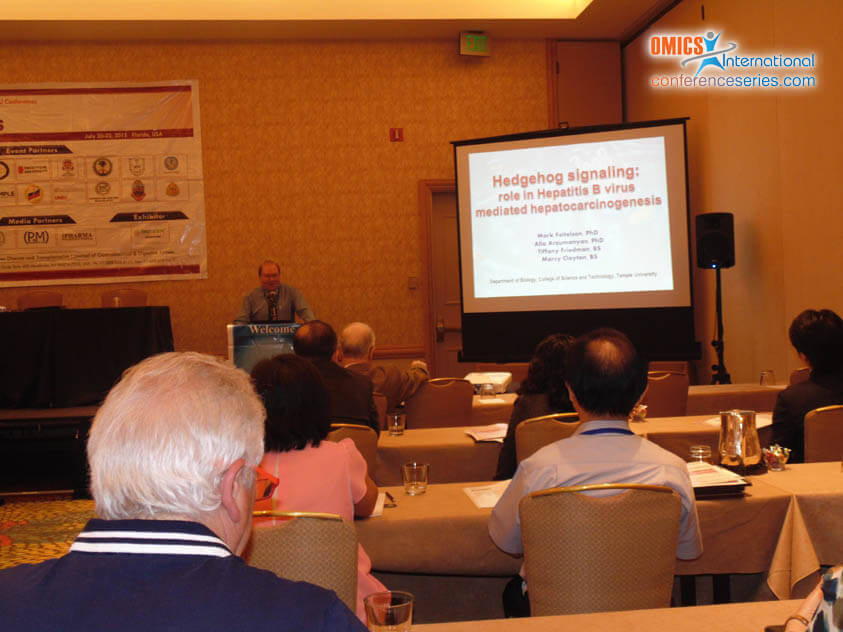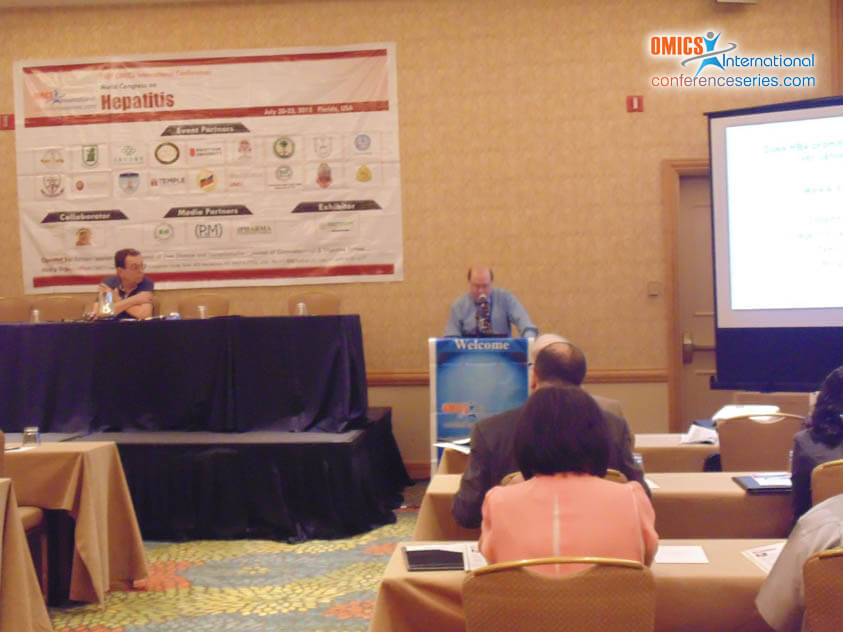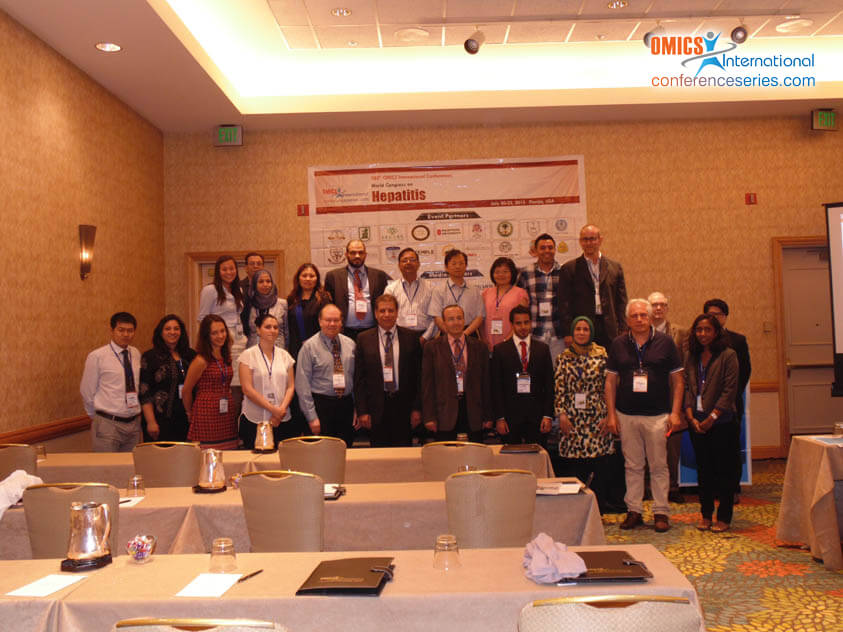
Dr. Mark A Feitelson
Temple University, USA
Title: Hedgehog Signaling Blockade Delays Hepatocarcinogenesis Induced by Hepatitis B Virus X Protein
Biography
Biography: Dr. Mark A Feitelson
Abstract
The hepatitis B virus (HBV) encoded X protein (HBx) contributes centrally to the pathogenesis of hepatocellular carcinoma (HCC). Aberrant activation of the Hedgehog (Hh) pathway has been linked to many tumor types including HCC. Thus, experiments were designed to test the hypothesis that HBx promotes HCC via activation of Hh signaling. HBx expression correlated with an upregulation of Hh markers in human liver cancer cell lines, in liver samples from HBV infected patients with HCC, and in the livers of HBx transgenic mice (HBxTg) that develop hepatitis, steatosis, and dysplasia, culminating in the appearance of HCC. The findings in human samples provide clinical validation for the in vitro results and those in the HBxTg. Blockade of Hh signaling inhibited HBx stimulation of cell migration, anchorage-independent growth, tumor development in HBxTg, and xenograft growth in nude mice. Results suggest that the ability of HBx to promote cancer is at least partially dependent upon the activation of the Hh pathway. This study provides biologic evidence for the role of Hh signaling in the pathogenesis of HBV-mediated HCC and suggests cause and effect for the first time. The observation that inhibition of Hh signaling partially blocked the ability of HBx to promote growth and migration in vitro and tumorigenesis in two animal models implies that Hh signaling may represent an "oncogene addiction" pathway for HBV-associated HCC. This work could be central to designing specific treatments that target early development and progression of HBx-mediated HCC.



